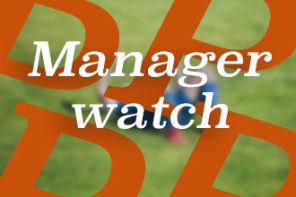It had taken hard work and dedication to achieve the impossible. But even as Claudio Ranieri and Wes Morgan hoisted the Premier League trophy above their heads in May 2016, the feat still seemed scarcely believable.
Matt Reeves was in the wilderness before he joined the Foxes. A university student who’d been released by Fulham’s academy as a youngster, his hopes of making it to the elite level of the game seemed a faraway dream. Now, just years on from accepting a single day’s work experience, he was part of football’s 10,000-1 fairy tale.
Reeves’ story may not have received the column inches that Messrs Vardy and Mahrez earned, but his ascent to Leicester’s title-winning Head of Fitness and Conditioning was no less noteworthy. And it stands as a great example of how a young coach can reach the top without a big book of contacts to rely upon.
“I was at Loughborough University and had gone back to campus early for first-team training – I decided that instead of sitting around waiting for everyone to come back, I’d start focusing on what I was going to do after uni,” recalls Reeves, looking back at his breakthrough in the East Midlands in 2008.
“I sent a few emails to local clubs and my first one was to Leicester. I was very fortunate and my timing was perfect because they’d just been relegated to League One, which was a shock for a club that size. Nigel Pearson had just come in as manager and wanted to set up a sports science department.
“Luckily, Dave Rennie [Leicester’s head physio] saw the benefit of having an extra pair of hands during pre-season to help with the extra workload and transition. I went in for one day, two days, then it was for the rest of the week, then two weeks and six weeks – it all snowballed from there.”
While he remains humble, Reeves’s hopeful email sent from student digs didn’t lead to a Premier League winner’s medal because of fortune alone.
The path a sports scientist takes to join a football club’s staff is different to those who want to land a more technical coaching role, with academic qualifications – rather than coaching badges – the order of the day. But the knack of getting in the door and staying there is similar, and the role is no less crucial to a team’s success.
For Reeves, that meant earning his place as one of former Leicester boss Pearson’s trusted backroom team. So when the Nottingham-born gaffer left the Foxes for Hull City a couple of years into his first spell at the King Power Stadium, Reeves was one of a select band of loyal staff who followed him to the Tigers – and then returned with Pearson a year later.
“At the time, I did realise I had a great opportunity,” Reeves continues. “You’ve got to be happy to get stuck in with anything you can. A lot of it is being proactive, showing a willingness to learn and develop, help others and trying to be attentive of what other people’s needs are.
“It’s very easy when you’re new into an environment to become a hindrance. First impressions are huge in football and they’re made very quickly because you’re dealing with so many people on a daily basis. If you make a poor first impression, it’s really hard to turn that around.
“First of all, it’s about trying to do the right thing and not coming in thinking you know everything because you’ve done two or three years at university. Understand your place and know where you fit in, and ultimately try to develop.”
Reeves hasn’t forgotten his roots since hitting the big time with Leicester – and being involved with England’s World Cup-winning Under-20s last summer – and still works with sports science students to help them gain the tools required to succeed in their dream career. And number one on his list of must-have characteristics? A willingness to keep learning.
It’s a sentiment that Harrogate Town boss Simon Weaver agrees with. The former Lincoln centre-back knows all too well how difficult it is for coaches to break into any level of the game, having been approached by countless hopefuls during his nine-year tenure in North Yorkshire.
Weaver took the reins of a Town side that was struggling to stay afloat on and off the pitch in 2009, knowing it was his best chance to get the management experience he craved. Only a reprieve from relegation due to another team’s financial woes and a takeover of his own club meant he survived those early days.
Since then, things have steadily improved and he’s encountered several other coaches desperately searching for a similar opportunity to shine. And while he recognises the desire to succeed, Weaver has to be selective whenever he has positions available.
Just like Reeves, Weaver believes qualifications can only get you so far. The 40-year-old says that when he’s hiring a new coach – whether it’s for the first team or the juniors – it’s an individual’s personality traits that will ultimately decide if it’s a yes or a no.
“It all boils down to the person and how they come across,” Weaver explains. “Having a licence does give coaches credibility – I had an agent get in touch recently about a Pro Licence coach looking for a role – but it’s not necessarily about going for the first person who’s most qualified.
“Just because someone is more qualified doesn’t mean you wouldn’t want to help somebody with a B Licence build and develop with us instead. It’s about the person and how they deliver a session, because some people have the qualifications but have focused solely on textbooks.”
While Weaver’s recruitment policy is more holistic, it hasn’t stopped him attempting to further his career by taking more qualifications himself. Yet despite his best efforts, he’s yet to be accepted on a Pro Licence course due to the sheer number of applications from other candidates.
The lack of availability of course spaces stunts coaches’ progression at all levels of the game. If qualifications are needed to get you in the door in order to show off those crucial personal qualities, administration may be getting in the way for some coaches.
“I agree that you can’t just open the doors to everyone and sometimes you have to be patient,” Weaver reasons. “But if people are willing to fund the course themselves in pursuit of more knowledge and to improve themselves, and are in a position where they’re in day-to-day management, there should be opportunities for them. Hopefully it will be extended to non-league because there isn’t much difference between National League and League Two nowadays.”
Among the modules Weaver hopes to benefit from when he finally gets on to the Pro Licence course are the inner-workings of football business and sports science. By extending his knowledge of the dark arts away from touchline, Weaver is doing what most managers and coaches do to survive: enhancing their skills so they can work outside their comfort zone. Once more, it’s a question of attitude.
So with the crossover becoming greater and former physios, such as Hull boss Nigel Adkins, demonstrating they can succeed as a coach, could we soon see sports science becoming a route to making it as head honcho?
“It’s difficult because you need very specific skill-sets, particularly to get to the top of the game,” Reeves ponders. “But that’s not saying it’s impossible.”
Then again, if an unassuming email can set a university student on the path to becoming a Premier League champion, there’s still plenty of hope for a nation of young coaches.






